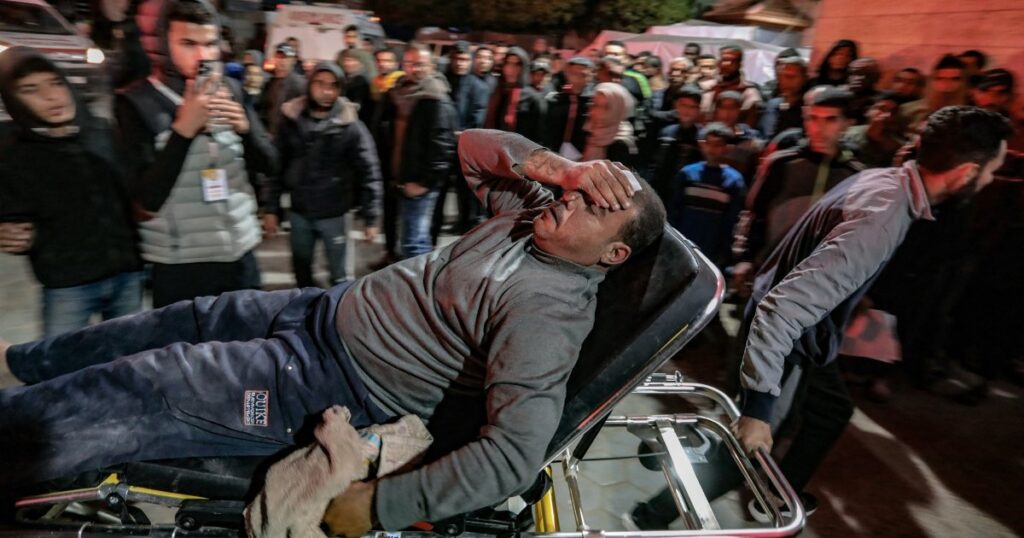Managua accuses Berlin of violating the genocide convention by financing the Israeli war against Gaza.
Nicaragua has sued Germany at the International Court of Justice (ICJ) for funding Israel and cutting its aid to the United Nations agency for Palestinian refugees (UNRWA), the court announced Friday.
The Latin American country accused Berlin of violating international law by continuing to finance Tel Aviv and asked the ICJ to order emergency measures that would force Germany to stop its military aid to Israel and restart the funding from UNRWA.
“By sending military equipment and now defunding UNRWA, which provides essential support to the civilian population, Germany is facilitating the commission of genocide,” Nicaragua said in its filing, citing the Convention on the 1948 genocide and the 1949 Geneva Conventions on the laws of war at home. occupied Palestinian territories.
Germany is a key ally of Tel Aviv and one of its largest arms suppliers alongside the United States, according to UN experts.
The hearing date is not yet known, but the ICJ, also known as the World Court, typically begins proceedings on requests for emergency measures within a few weeks.
At least nine donors to UNRWA, including the United States, Germany, Switzerland, Canada and the United Kingdom, have suspended their funding after allegations that around 12 of the tens of thousands of Palestinians employed by the The agency was suspected of having participated in the Hamas attacks in Israel on October 7. .
But Israel has yet to provide evidence to UN investigators, more than a month after making its claims.
Deaths due to hunger
Berlin was UNRWA’s second-largest donor after the United States in 2022, when it pledged $202 million to the agency.
UNRWA has warned that suspending its funding could prevent it from providing humanitarian aid to Gaza, which has seen deaths due to hunger and a lack of health facilities. On Thursday, at least 117 people were killed after Israel fired on hundreds of Palestinians waiting to receive food aid in Gaza City. The incident has sparked global condemnation and calls for an independent investigation.
Emergency measures, Nicaragua said in its Friday statement, were necessary because of Berlin’s “participation in the ongoing plausible genocide and serious violations of international humanitarian law” in the Gaza Strip.
Under the Genocide Agreement, countries agree not to commit genocide, meaning complicity in the act constitutes a violation. The pact also allows member states to actively prevent and punish possible genocide.
The Managua case follows an earlier and widely followed complaint filed by South Africa last December, accusing Israel of committing genocide against Palestinians in Gaza.
In February, the ICJ ruled that Pretoria’s claims that Israel had violated the genocide convention were not implausible and ordered emergency measures, including a call on Israel to stop any acts potential for genocide in Gaza.
Israel, which defended itself at hearings in South Africa, has denied allegations of genocide, citing “self-defense,” although experts have questioned Israel’s “right to defense” as a occupying power. The case continues. Last week, Human Rights Watch said that obstructing Israel’s delivery of aid was a violation of the ICJ’s January 26 order.
“The Israeli government is starving Gaza’s 2.3 million Palestinians, putting them in even greater danger than before the World Court’s binding order,” said Omar Shakir, Israel and Palestine director at Human Rights Watch, on March 26. FEBRUARY.
Israel has also been criticized for targeting civilians, with more than 80 percent of those killed being women and children. More than 30,000 Palestinians have been killed and around 7,000 remain missing since Israel launched its brutal attack on October 7, following a deadly attack by the Palestinian group Hamas.
In separate proceedings before the ICJ, more than 50 countries presented arguments in February against Israel’s occupation of the West Bank, Gaza Strip and occupied East Jerusalem since 1967.

